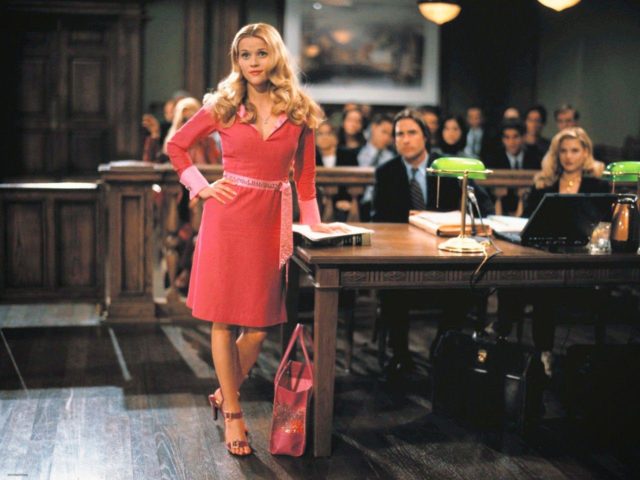A young, lady lawyer wins with her looks; an old one needs a strong case.

Pretty, young, female lawyers are fascinating to watch in court, and “they might occasionally get away with a verdict from a susceptible jury.” But they cannot achieve the same level of success as a young male lawyer. By the time a female lawyer gains sufficient experience to compete with her male counterpart she will be old and ugly. Her powers of persuasion lie in the strength of her case. That’s the thesis of an article called “Female Lawyers,” which appeared along with closeups about Lavinia Goodell and Kate Kane (Wisconsin’s first two women lawyers) in the March 16, 1879 Milwaukee Sunday Telegraph. The article is reprinted below in full.
Female Lawyers[1]
There is something attractive about the idea of a young, neatly dressed, blooming woman as a lawyer. Female youth and beauty always possess great fascinations. The flushed and dimpled cheek, the rounded chin, liquid eyes, red lips and pearly teeth, with a wreath of hair in coils, or puffs, or curls, or elaborately “banged” or wreathed in “spit curls,” and with a pleasant voice and a graceful form, would interest any jury. The new lady lawyer in Milwaukee is good-looking, and but twenty-four years old.
Often the man who aspires to study law does not enter upon his studies till he is twenty-three. But few lawyers are admitted to practice at that age. If they commence to practice so young, they are generally merely juniors of a firm, transact the small office business, copy letters or papers, or attend to the minor simple cases before justice courts. They seldom, very seldom, attempt alone to try jury cases, or any cases of magnitude.
The male lawyer does not expect a large business of his own till he is well along in the thirties; at forty he is just upon the threshold of his career of usefulness, eminence and success; he does not mature till he is fifty. He is then wrinkled, partially gray, wears spectacles to read his brief, his teeth are blackened with age and use, or he has artificial sets; the saliva from tobacco stains his lips; he rarely or never dresses jauntily and with extreme neatness; he is more often slovenly appareled.
Those are his days of greatest power. He has then arrived at the maturity of his faculties. His person has ceased to be attractive, but his mind has become clothed in beauty; his sagacity, his readiness, his wit, his stores of learning, his eloquence if he has it, are at their best. You do not expect to be attracted by his personal appearance, but you are attracted by the power of his understanding and by the wealth of his knowledge and experience.
A lady lawyer who is young and beautiful cannot have acquired the knowledge and experience which are necessary to meet the practiced veterans of the bar in the trial of cases. The lovely and youthful advocate might occasionally get away with a verdict from a susceptible jury, but if not well sustained by the law and evidence it would not stand long. It does not therefore appear that in the trial of cases, young lady lawyers can achieve greater successes than very young men lawyers can achieve.
When the lady shall have acquired the experience of her male competitor she, alas, will be no longer young and beautiful. She too will be gray and wrinkled with years, with study, with wakefulness, with labor, with disappointment, or with the excitement and exultation of success, which bring the appearance and outward symbols of age, as often as does failure and sorrow. She will be spectacled, with decayed or false teeth. The long habits of research and peering into intricate cases will have made her nose and chin peaked and skinny, and drawn the eyes closer together, with vertical furrows between them.

She will not be dressed with superlative neatness; she will not be graceful in her form nor elastic in her step and motions; she will have lost her power with susceptible juries, and must depend for success on the strength of her case and the skill with which it is managed, with the disadvantage of being an unattractive old woman, considered by the prejudices of the times to be out of her place. Could she have always remained youthful and pretty, and so have acquired learning and experience, the case would be different.
Some women may grow old beautifully, and thus escape the results which ugliness and unloveliness would encounter, but such cases would be rarer in the busy whirl of outdoor life, every step of progress in which is fought for inch by inch, with earnest endeavor, against baffling obstacles, over tormenting difficulties and retarded by exasperating delays, than they are in the quiet homes where woman presides at the domestic hearth, and ripens amid the pleasant duties which her home and family impose.
Undoubtedly there are many things in the legal profession which women, and young women, can do well. It is real progress that has opened the door of the profession to women; for they can have there the means of a livelihood and a measure of success, although there are apparently causes why they will not reach the highest distinction, and will fail in the most earnest and labored encounters with their male competitors.
[1] Some of the original paragraphs have been subdivided to make the article more readable online.








Amazing how sexism remains so ingrained in a culture. When my wife started practicing law in 1980, she encountered firms that would not hire a woman in a lawyer position, just as Lavinia discovered more than a 100 years earlier. Today, more women than men are enrolled in our state university law school. Maybe the author of the piece was onto something and it took male lawyers a century to realize that sexism could have benefits in the courtroom before all male juries.